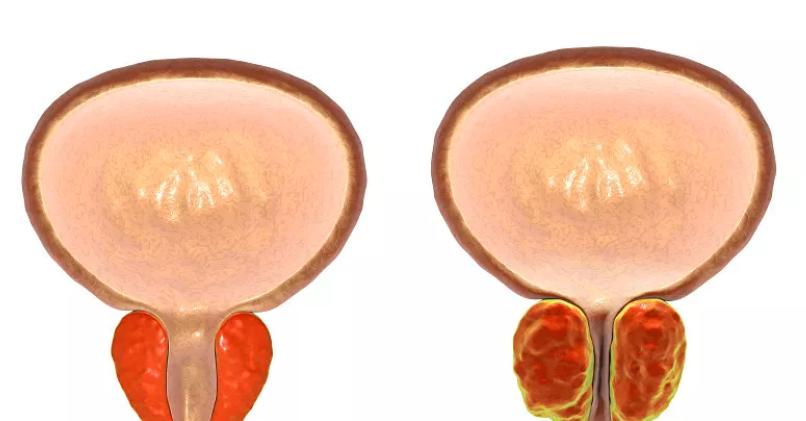Text/Yangcheng Evening News all-media reporter Zhang Hua Correspondent Wei Xing
Prostatic hyperplasia is the most common disease in older men, mostly at the age of onset in the 50s and increasingly incidence as they age.
According to statistics, the incidence is greater than 50% at the age of 60, and as high as 83% at the age of 80. About 50% of male patients with prostatic hyperplasia will have symptoms such as frequent urination and rapid nocturia.
Experts say that although prostatic hyperplasia is an inevitable experience of male aging, if more prevention is done in life, it can help reduce symptoms.

Diet less irritation, more fruit anti-aging
It is reported that the cause of prostatic hyperplasia is not yet fully understood, but the imbalance in the ratio of androgens and estrogens in the body caused by aging and the decline in androgen levels and increased estrogen levels in the body is its main cause.
Professor Deng Junhong, director of the Department of Andrology of the First People's Hospital of Guangzhou, introduced that the prostate is a unique male gonad organ, shaped like a chestnut and wrapped around the proximal urethra. Because the male urethra passes through the prostate tissue, prostatic hyperplasia can compress the urethra and cause symptoms such as urinary frequency, urgency, and dysuria.
Professor Deng Junhong pointed out that in order to delay the process of prostate hyperplasia, middle-aged and elderly men should pay attention to eating less irritating foods such as peppers and peppers in their diets to reduce stimulation of the prostate and avoid prostate congestion; At the same time, avoid alcoholism, because excessive alcohol consumption can also cause prostate congestion, and in severe cases, it can even lead to urinary retention. In the diet, you can eat more fresh vegetables and fruits, seed foods such as walnuts, pumpkin seeds, etc., to supplement the body's vitamins and trace elements such as zinc, selenium and so on. If the bladder is overactive and accompanied by urethral astringency, you can drink mung bean soup or mung bean porridge, or you can eat cold mixed black fungus.
In addition, lycopene, as a member of the carotenoid family, has strong antioxidant activity. Studies have shown that lycopene can play an anti-prostatic hyperplasia or anti-prostate cancer role by antioxidant, inhibiting cell proliferation, and influencing the expression of related genes and proteins. Therefore, you can usually eat tomatoes (cooked food).
Strengthens pelvic floor muscle function and contributes to normal urination
In terms of lifestyle, more exercise, such as health gymnastics, has a certain help to strengthen the muscle function of the bladder, urethra, perineum, rectum, anus and other diseased parts, and also helps to urinate normally. The specific methods are: (1) supine position, both arms up and back pillow under the head, the legs straightened and slightly apart, forcefully contract the hip muscles while the anus contraction lifted, breath 3 to 6 times, and then relax the muscles, repeat 3 to 5 times. (2) Supine position, two-handed pillow, knee joint bending, soles of feet on the bed surface, two feet apart to forcefully raise the back, waist, hips upwards, while contracting the perineum and muscles, breathing 3 to 6 times, and then relax the muscles, repeat 3 to 5 times.
"Men should not sit for a long time or ride for a long time to avoid local pressure on the prostate and cause poor blood flow in the prostate tissue. It is generally believed that sitting for more than 2 hours should be active for 5-10 minutes. Deng Junhong also reminded that people should control their weight in middle age, because excessive obesity will increase abdominal pressure and affect the urethral coordination disorders of the bladder and prostate, inducing lower urinary tract symptoms; At the same time, pay attention not to hold urine, and urinate immediately when there is a desire to urinate, so as not to damage the function of the detrusor muscle of the bladder and aggravate the condition.
Tips: Use medication with caution to avoid acute urinary retention
Patients with prostatic hyperplasia should take care to avoid drugs that affect the function of the detrusor muscles of the bladder and the sphincter of the bladder, hinder the process of urination, and aggravate dysuria. For example, atropine, belladonna, scopolamine, scopolamine, probenxine and so on. These drugs can cause dysuria and even urinary retention. (For more news, please pay attention to Yangcheng Pie pai.ycwb.com)
Source | Yangcheng Evening News Yangcheng Pie
Image | Visual China
Editor-in-charge | Lin Qingqing